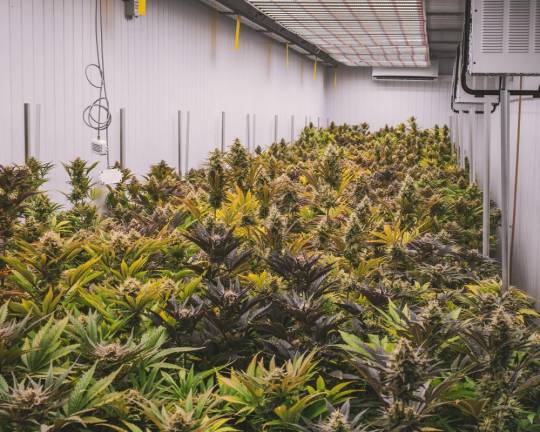Cannabis Legalization and Licensing in New York
What to know about the new Marihuana Regulation & Taxation Act

On March 31, 2021, the Marihuana Regulation & Taxation Act (MRTA) became law in New York. It legalized adult-use cannabis in the state and established a framework for licensing the cultivation, processing, distribution, retail dispensing, delivery, and on-site consumption of cannabis. The legislation created the Office of Cannabis Management (OCM) led by the Cannabis Control Board (CCB), which will set regulations and manage the state’s cannabis industry. Additionally, the law provides for expunging various cannabis convictions in order to clear the records of past offenders.
Some parts of MRTA are already in effect. It is now legal for a person 21 years of age or older to possess and use up to three ounces of cannabis flower and twenty-four grams of cannabis concentrate. In a departure from other states which limit the smoking of cannabis to private homes or other private spaces, New York allows the smoking of cannabis in any location where smoking tobacco is allowed and will eventually allow on-site consumption lounges which will effectively be “cannabis bars.” Additionally, the automatic expungement of some cannabis convictions is currently in progress.
During 2022, the CCB will draft regulations for the implementation of MRTA. They will establish rules for businesses and the licenses for the cultivation, processing, distribution, retail dispensing, delivery, and on-site consumption of cannabis. With limited exceptions, businesses will only be allowed to have one kind of license. The goal of the CCB is to make the draft regulations available within the next one to two months and have the licensing process start and businesses opening in late 2022 or early 2023. To jump start this, the legislature and the CCB are working to implement “conditional” licenses for cultivation, processing, and retail dispensing.
Collecting Taxes
As with other regulated activities in New York, state and local governments will collect taxes on the activities contemplated under MRTA. For adult-use cannabis, there will be a 13% tax on retail sales, 9% of which will go to the state and 4% to the local governments where the sales take place, along with a wholesale tax of 0.005 cents (1/2 of a cent) per milligram of THC for cannabis flower, 0.008 cents (8/10 of a cent) per milligram of THC for concentrated cannabis, and 3 cents per milligram of THC for edible products.
MRTA requires that an effort be made to include various groups in the license pool via its social and economic equity initiative. Such groups include minority and women owned businesses, service disabled veterans, and distressed farmers. Additionally, individuals who were impacted by a conviction of a cannabis-related offense prior to the effective date of MRTA, are a member of a community disproportionately impacted by the enforcement of cannabis prohibition, and have an income lower than 80% of the median income of the county in which they reside will also receive special consideration for licensing.
The goal of MRTA is to issue 50% of the licenses to social and economic equity licensees, and the conditional retail dispensary licenses will be set aside specifically for individuals who have been convicted of a cannabis offense and meet various other criteria.
In order to support social and economic equity applicants, Governor Kathy Hochul has proposed the creation of a $200 million Social Equity Cannabis Investment Fund. The Fund will use state and private investor capital to lease, upfit, and rent commercial space to social and economic equity retail dispensary licensees. It is likely that conditional retail licensees will be required to locate their businesses in these facilities.
A significant component of MRTA is expunging cannabis convictions from criminal records. The reason that so many individuals have been negatively impacted by such convictions is due to the fact that they have had to check the “yes box” when job or housing applications asked if they had ever been convicted of a crime. The anti-cannabis enforcement pursued over the years in the United States is one of the most inane things a society has ever done to itself, and this component of MRTA is one step towards righting that wrong. Generally, convictions for possessing up to 16 ounces or selling up to 25 grams of cannabis are now eligible for expungement.
To date, New York has created some of the most liberal cannabis laws, not just in the United States, but anywhere in the world. It is not unreasonable to think that, once New York fully implements its visitor-friendly cannabis industry, it will take the title of “Cannabis Tourism Capital of the World” from its former namesake: Amsterdam. Could the New York cannabis market be worth $10 billion or more? It doesn’t seem far-fetched at all.
Jeffrey Hoffman is an attorney in New York whose practice focuses on clients in the cannabis industry. He has a particular interest in social and economic equity cannabis license applicants, and he also assists those convicted of cannabis offenses. He can be reached via email at: info@420jurist.com
This op-ed is not legal advice. It does not create an attorney-client relationship, nor is it a solicitation to offer legal advice. Do not convey confidential information in any message or comment.